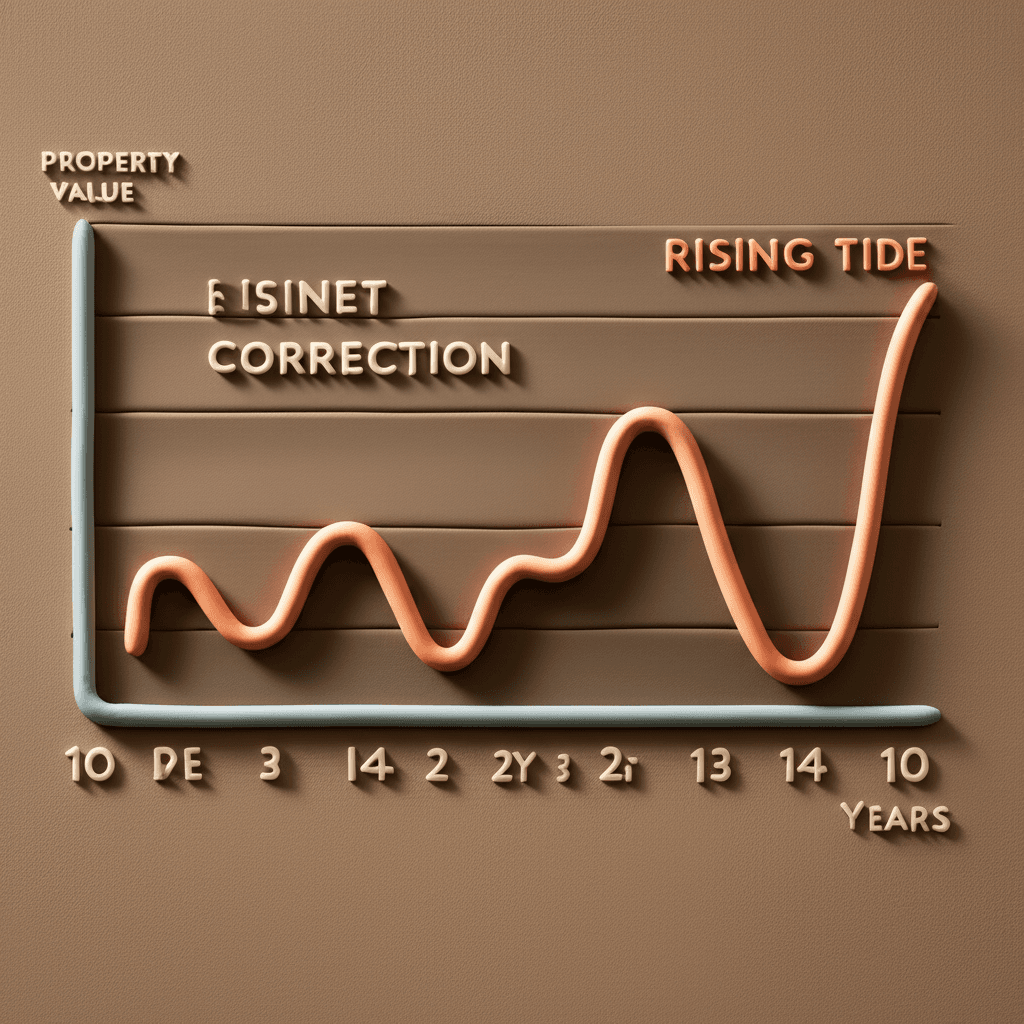How to Choose a Property Advisor in Australia: Your 2025 Guide
Avoid common pitfalls and build a high-performing portfolio with data-driven, holistic advice.

Introduction
Navigating the Australian property market in 2025 presents both incredible opportunities and significant risks. With markets like Perth experiencing rapid growth, many investors are making substantial gains. However, this success often masks a critical truth: not all advice is created equal. Choosing the right property advisor is the single most important decision you can make, and it goes far beyond simply finding someone to buy a property for you. A true advisor builds a long-term strategy tailored to your unique financial situation and life goals.

The Danger of Accidental Heroes
A common saying in a booming market is "a rising tide lifts all ships." In recent years, many investors have seen their portfolios grow, leading some to believe any purchase is a good purchase. This can create 'accidental heroes'—advisors who have delivered strong results simply by being in the right market at the right time, not through strategic expertise. True skill is demonstrated by navigating market cycles, both up and down. An expert advisor uses in-depth market analysis to guide you, ensuring your strategy is resilient enough to withstand downturns and poised to capitalise on genuine growth opportunities, a core feature of HouseSeeker's Real Estate Analytics Hub.

Buyer's Agent vs. Property Advisor: A Critical Distinction
It's crucial to understand the difference between a buyer's agent and a property advisor. A traditional buyer's agent executes your instructions. You tell them, "I want to buy a three-bedroom house in Morley for $800,000," and they go and find it.
A property advisor, however, starts with a different question: "What are you trying to achieve?"
They don't just take orders; they build a comprehensive strategy. An advisor delves into your financial position, long-term goals, risk tolerance, and cash flow to recommend the right asset in the right location for you. We could have five clients with the same $800,000 budget, and each might receive a completely different recommendation—one might need high yield, another capital growth, and another might be advised not to buy at all. This strategic, personalised guidance is the foundation of services like HouseSeeker's AI Buyer's Agent.
Key Questions a Great Advisor Will Ask
When you first meet with a potential advisor, they should be doing more listening than talking. Their goal is to extract as much information as possible to build your unique profile. Expect them to ask about:
Your Goals: Are you aiming for wealth creation, paying off your home loan, or planning for retirement?
Your Timeline: How long do you plan to hold the asset? This dramatically influences the type of property you should buy.
Your Financials: What is your borrowing capacity, and more importantly, what is your free cash flow? This determines whether you can afford a high-growth, lower-yield asset or if you need a property that supports itself financially from day one.
Your Life Plans: Are you planning to upgrade your own home soon? A good advisor knows that buying an investment property first could exhaust your borrowing capacity, making your dream home unattainable later.
Common (and Costly) Mistakes to Avoid
Inexperienced or agenda-driven advisors can lead investors down a dangerous path. We see common horror stories that could have been easily avoided with holistic advice:
1. Poor Financial Structuring: A client was advised to take on a small loan for stamp duty and CGT on an inherited property. This left them with a massive, non-deductible debt on their own home and a tiny, deductible debt on their investment. A simple restructure—selling the property to himself at market value and using a gift of equity to pay down his home loan—created over $40,000 in annual tax deductions, saving him around $12,000 a year. 2. Ignoring the Bigger Picture: An advisor pushed a client towards setting up a Self-Managed Super Fund (SMSF) to buy property without any regard for their personal insurance. The client was moments away from rolling over their super, which would have cancelled their life, TPD, and income protection insurance, leaving their family completely exposed. 3. Chasing Unicorns: In a hot market like Perth, many investors chase the 'retain and subdivide' dream. However, with high demand and low stock, these properties are often overpriced, and feasibilities show that the deals simply don't make financial sense. The opportunity cost of waiting months to find a mythical deal can mean missing out on 15-20% growth in a high-quality A-grade asset.

Strategic Portfolio Management
Effective property investment is not just about buying; it's also about managing and optimising your portfolio over time. This includes knowing when to sell.
Holding onto B-grade or C-grade assets can be a significant drag on your portfolio's performance. The opportunity cost of having your capital tied up in an underperforming property in Perth, when it could have been working for you in a market like Melbourne from 2015-2020, is enormous. A skilled advisor uses data to help you decide when to divest underperforming assets and redeploy that equity into A-grade properties in markets with strong growth fundamentals, such as those you can identify using advanced real estate analytics.
One key metric for identifying value is replacement cost. In markets like Melbourne, it's possible to buy an established property for significantly less than it would cost to buy the land and build it new today. This provides a built-in equity buffer and a strong indicator of future growth potential.
Conclusion
The difference between a successful property journey and a story of missed opportunities often comes down to the quality of your advice. Don't be swayed by 'accidental heroes' thriving in a hot market. Instead, seek out a genuine property advisor who prioritises your long-term strategy, understands the nuances of data and timing, and works with a holistic team of professionals. By demanding a data-driven, personalised, and comprehensive approach, you can set yourself up for lasting success in the Australian property market.
Ready to make smarter, data-backed property decisions? Explore HouseSeeker's Real Estate Analytics Hub to see how AI can guide your investment journey.
Frequently Asked Questions
What's the main difference between a buyer's agent and a property advisor?
A buyer's agent typically executes a client's specific instructions to purchase a property in a designated area. A property advisor takes a strategic, holistic approach, first understanding a client's overall financial situation, goals, and risk profile before recommending a specific asset, location, and long-term plan.
Why is data so important when investing in property?
Data is crucial for moving beyond emotion and speculation. It allows you and your advisor to understand market cycles, identify areas with strong growth drivers (like low vacancy rates and population growth), assess value by metrics like replacement cost, and determine the optimal timing for buying or selling. This data-driven approach minimises risk and maximises your potential for success.
Should I only invest in my local market?
Not necessarily. While investing in your backyard can feel comfortable, it may not be the best strategic decision. A good advisor will analyse markets across Australia to find the one that best aligns with your goals. For example, while Perth is currently experiencing strong growth, an investor with a different risk profile or timeline might find better opportunities in a market like Melbourne, which is earlier in its growth cycle.
